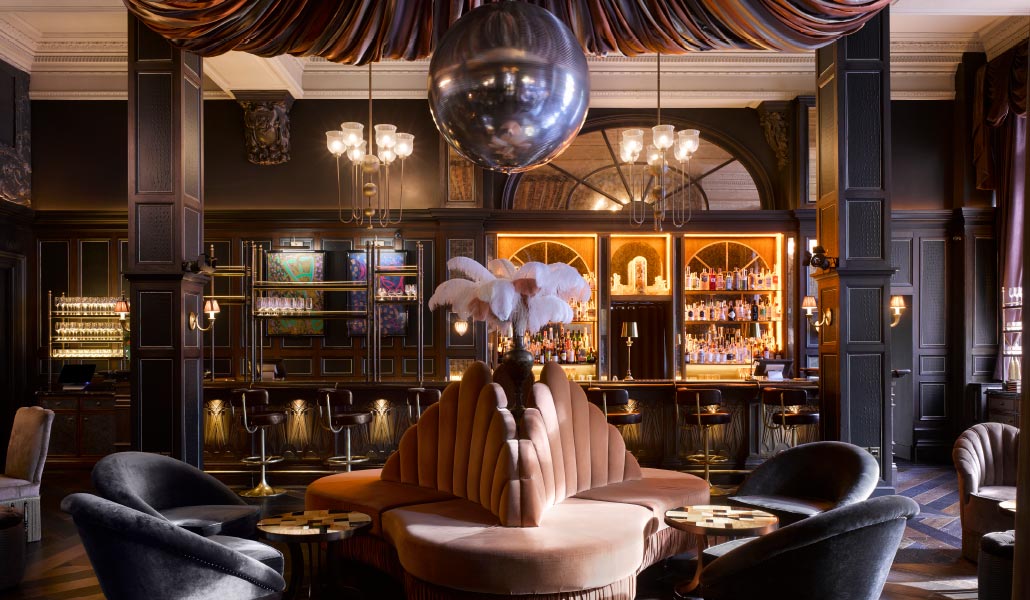Something strange and wonderful is happening to our rather staid global hotel chains. They are launching funky hotel brands in order to capture a newer, younger audience and keep in the game as increasing numbers of Millennials join the workforce. Just as Uber disrupted the ground transportation sector, multiple disruptive hotel brands are doing the same for the hotel business, the difference being that they’re not start-ups but long-established players. Andaz from Hyatt was an early adopter, so too W by Starwood. Since then we’ve seen Marriott, IHG and Accor join the fray.
Industry observers point to the fact that the lifestyle market continues to grow and has the most important growth prospects in the industry.
Times Square, New York, exemplifies the trend as here you’ll find two distinctive disruptive brands within close proximity: The Moxy NYC Times Square and Edition. Both provide design-led architecture and interiors, a focus on communal social spaces, flexible meeting space, fast wifi, and bustling bars and restaurants.
The 612-room Moxy is just south of Times Square and its guest rooms have massive walk-in rain showers and free wifi, while the ground floor social space is built for co-working and play with multiple bars and restaurants, plus Magic Hour, the city’s largest all-season hotel rooftop bar and lounge with epic skyline views and offering decadent cocktails.
The blurb says the Moxy brand has been “fearlessly imagined for fun hunters” and provides an ultimate playground for guests. It is target squarely at the Millennial traveller, “who understands that style can be delivered at attractive prices”. The 17sqm guest bedrooms have been designed to feel spacious, much on what’s on offer is self-service, and the brand is underpinned by a visual and engaging social media platform.
The surprise is that three-star Moxy comes out of the same stable as Renaissance Hotels, Courtyard and Residence Inn; in other words, Marriott International. Look down Marriott’s list of brands as this mega player has embraced change wholeheartedly, with the likes of other super cool hotels, such as Edition Hotels and Bulgari.
Edition has the same heritage. Conceived by renowned hotelier Ian Schrager and Marriott International, Edition Hotels also fills the new lifestyle boutique hotel space as Moxy but at a five-star level. The 273-room Edition hotel on Times Square offers a tranquil spa, event spaces, and a Michelin-starred restaurant headed up by superstar Executive Chef Jason Atherton.
There are currently nine Edition hotels open and five more on their way this year (in West Hollywood, Wuhan, China, Rome, Reykjavik and Singapore), five more in 2020 (in Bali, Doha, DubaI and two in Tokyo), plus a pipeline of openings stretching into 2023.
Since its launch in the US in 2015, there are now 14 Moxy hotels across the US, with six more opening before end 2019 (in Louisville, Minneapolis, Boston, Atlanta, and two in Nashville), while Europe already has almost 30 already operating – the bulk in Germany – as Europe was the launchpad for the brand in 2014. Some 16 more are on the way in cities as diverse as Liege, Lille, Hamburg, Munich, Dublin, Lisbon, Bern, Lausanne, Bristol and Birmingham. There are only three Moxy’s across Asia currently, in Indonesia and Japan.
Marriott International isn’t the only mega hotel player in this new game. InterContinental (IHG) has two millennial brands under its belt, Kimpton and Hotel Indigo. Kimpton was an acquisition from the San Francisco-based founders in 2011. Then the world’s largest independent boutique hotel operator, Kimpton now stretches across 35 cities globally (the bulk in the US), with 67 properties and 82 restaurants. Ten more hotels are in the pipeline to break out of the US and into cities such as Paris, Amsterdam, Bangkok, Tokyo, Bali, and Shanghai.
Food and drink are a major part of the offering at Kimpton, all based on minimal food miles based on a farm-to-table strategy to offer everything from bar bites and cocktails, casual bistro and street food to gourmet dining. Moreover, standard amenities include a clutch of unusual treats, including a hosted wine hour, free coffee and tea in the lobby, free bikes, in-room yoga mats and being able to bring pets for free.
IHGs Hotel Indigo claims to be a boutique hotel chain with authentic local experiences, modern design and intimate service. Launched in 2004 in midtown Atlanta, each Hotel Indigo bedroom offers flexible work spaces, spa-inspired bathrooms with walk-in showers, flexible gathering and event spaces to promote collaboration, free wifi, chic restaurants and cool cafes.
Accor is well established in the lifestyle sector with no less than ten brands: Delano, SLS, SO/, The House of Originals, Mondrian, 25Hours, Hyde, Mama Shelter, Jo&Joe and its latest, Tribe, launched in March this year. These brands comprise a portfolio of 100 hotels and 20,000 rooms, making them a major player in the lifestyle hotel sector worldwide.
Each of the brands provide bold interiors often created by renowned designers, open living spaces for working, socialising, music and entertainment, a varied food and beverage offering including mixology lounges, and rooftop terraces for example, plus informal staff.
Tribe has one hotel operating currently, a 126-room property in Perth, Australia, with ten more scheduled openings across Asia and Europe by 2022 (including an opening in Glasgow this summer) and some 50 in the pipeline. Tribe’s USP is a high-quality hotel experience at an affordable price, so designer chairs, cushions and lamps fill lobbies and guest rooms, which also include Nespresso coffee capsules rather than a minibar. A self-service Grab & Go station is available 24/7 and a daytime café turns into a bar in the evenings.
The lifestyle trend is likely to continue and Tribe certainly won’t be the last brand to try and woo Millennials away from cookie-cutter hotels.
